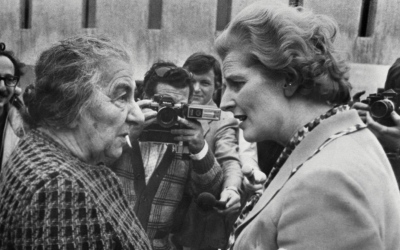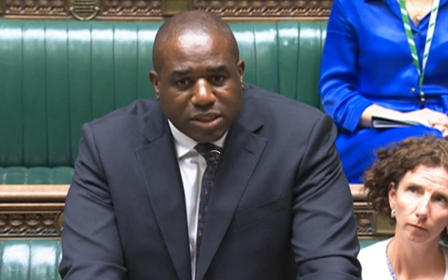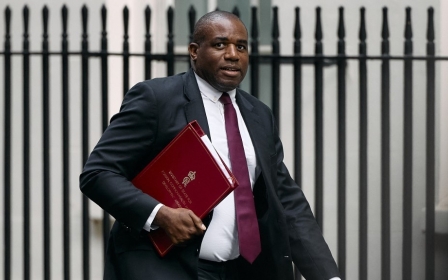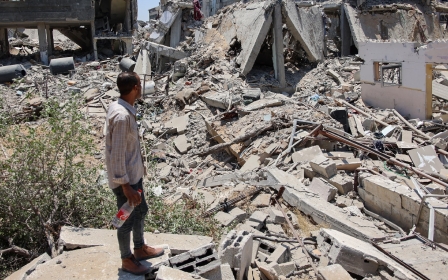Gaza: Lawyers challenging UK arms exports to Israel push on with legal fight
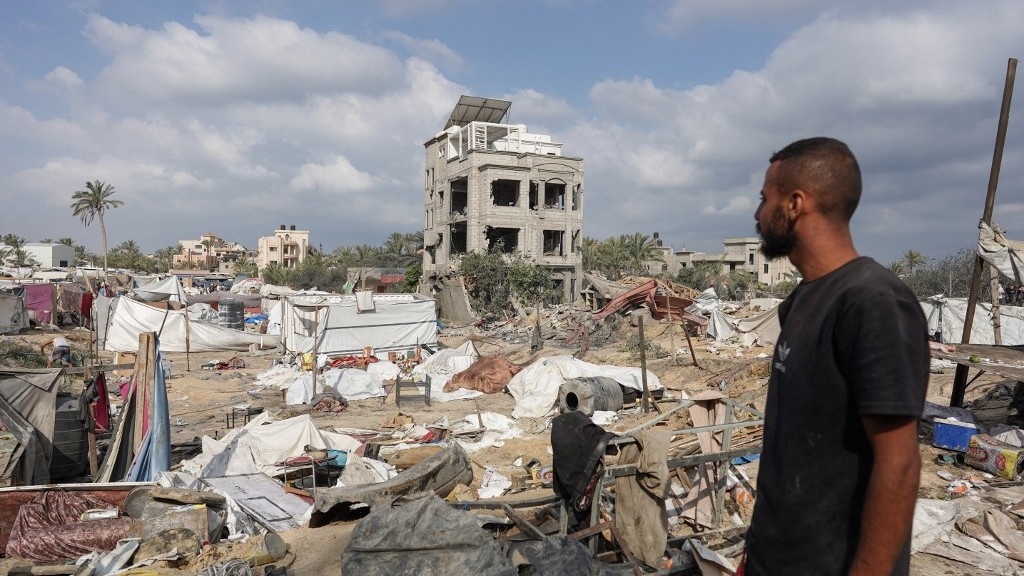
Two groups challenging UK arms sales to Israel in the High Court say they will push ahead with their case, hours after the UK government imposed a partial suspension of arms exports licences to the country.
Lawyers for the UK-based Global Legal Action Network (Glan) and Palestinian human rights group Al-Haq welcomed the suspension of 30 licences for arms exports announced in parliament on Monday.
But in a hearing on Tuesday, they said they were proceeding with their challenge to learn more about how the government came to its decision and that this information will inform their next steps.
In particular, barrister Phillippa Kaufmann said they want to know why UK-made components for F-35 fighter jets, used by Israel in the Gaza offensive, were exempted from the ban.
She suggested the groups intend to apply for an interim relief suspension in future proceedings if they were not satisfied by the government's reasoning on the F-35 components after analysing documents to be disclosed in coming weeks.
New MEE newsletter: Jerusalem Dispatch
Sign up to get the latest insights and analysis on Israel-Palestine, alongside Turkey Unpacked and other MEE newsletters
If granted, such a suspension would force the government to halt all arms exports to Israel, pending ongoing investigations.
Kaufmann also said they were looking at whether any weapons that haven't been banned could be used in the West Bank, where a major Israeli operation has killed at least 30 Palestinians since last week.
"It's good to hear that all those components that are prohibited will obviously not be able to be used in Gaza," she told the court.
"But are there other components that will have found their way to the West Bank?"
Jessica Wells, the barrister representing the UK government, told the court that the suspension of items that could be used in Gaza "would be suspended for use in the West Bank".
She emphasised that the urgency of the legal challenge had been "based on the ongoing severe nature of Israel's attacks in Gaza".
"As I've explained, licences for the export of equipments that might be used in such acts have been suspended," she said.
But Kaufmann argued that the concerns of Glan and Al-Haq remained urgent and active, pointing to a summary of the government's review that led to the suspension of licences.
The government concluded that Israel had not ensured that enough humanitarian aid had reached Gaza and that there were credible claims of the mistreatment of Palestinian detainees.
But it said it was unable, despite mass casualties in the conflict, to "reach a determinative judgement on allegations regarding Israel's conduct of hostilities".
Kaufmann said it was possible that the UK assessment moving forward on these two points could change, even while there remain serious concerns over Israel's conduct.
"That's why our complaint remains live," she said. "We submit that the urgency absolutely remains, especially because these decisions are periodically taken."
At the end of the hearing, the parties agreed on a timetable which will see the government disclose the information underpinning its assessments to the groups over the next two months.
'Backed into a corner'
Glan and Al-Haq had informed the government in a 30 August letter seen by Middle East Eye that they intended to seek a mandatory order which would have forced a full suspension of UK arms exports to Israel pending its ongoing investigation.
Glan lawyers told MEE that they decided to take the urgent action following several developments in recent weeks, including the resignation of a Foreign Office official over arms sales to Israel and Israel's incursion in the West Bank.
'The government has taken an important step, but it now needs to do much, much more to fulfil its obligations under the duty to prevent genocide'
- Charlotte Andrews-Briscoe, Glan
Hours before they were set to apply for the order on Tuesday, UK Foreign Secretary David Lammy announced the suspension of the 30 licences.
Charlotte Andrews-Briscoe, a lawyer with Glan, told MEE that the government had been “backed into a corner and had no options but to suspend arms sales”.
“The evidence we filed throughout this case, but most recently 16 August, proved that it is clearly irrational to continue to send arms exports to Israel with no restrictions,” Andrews-Briscoe said.
“This should have happened 10 months ago. The government has taken an important step, but it now needs to do much, much more to fulfil its obligations under the duty to prevent genocide.”
MEE asked the Foreign Office and Department for Business and Trade late on Tuesday if Glan and Al-Haq’s legal threat had provoked Monday’s announcement.
The business department declined to comment on ongoing litigation.
A Foreign Office spokesperson said: "This is not correct. The timing of this decision was driven by the review process and the law."
"The Foreign Secretary committed to reviewing arms exports from opposition and during the election campaign.
"As soon as he took office, he tasked officials with a comprehensive review of arms exports to Israel, and made the commitment to return to the House in this way once that process was complete.”
The next hearing in the case is set for 18 November.
Middle East Eye delivers independent and unrivalled coverage and analysis of the Middle East, North Africa and beyond. To learn more about republishing this content and the associated fees, please fill out this form. More about MEE can be found here.


